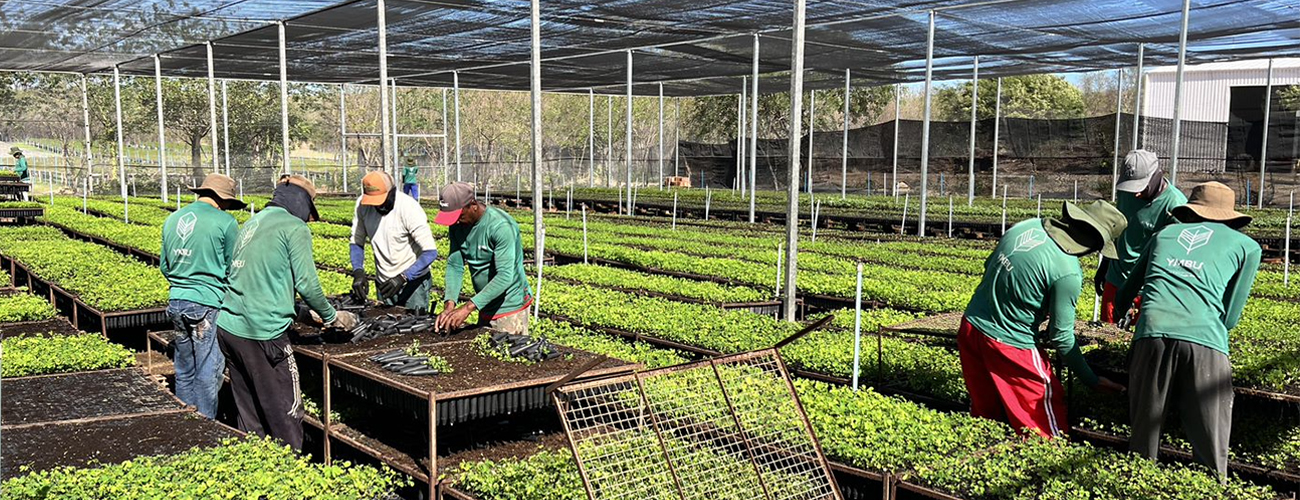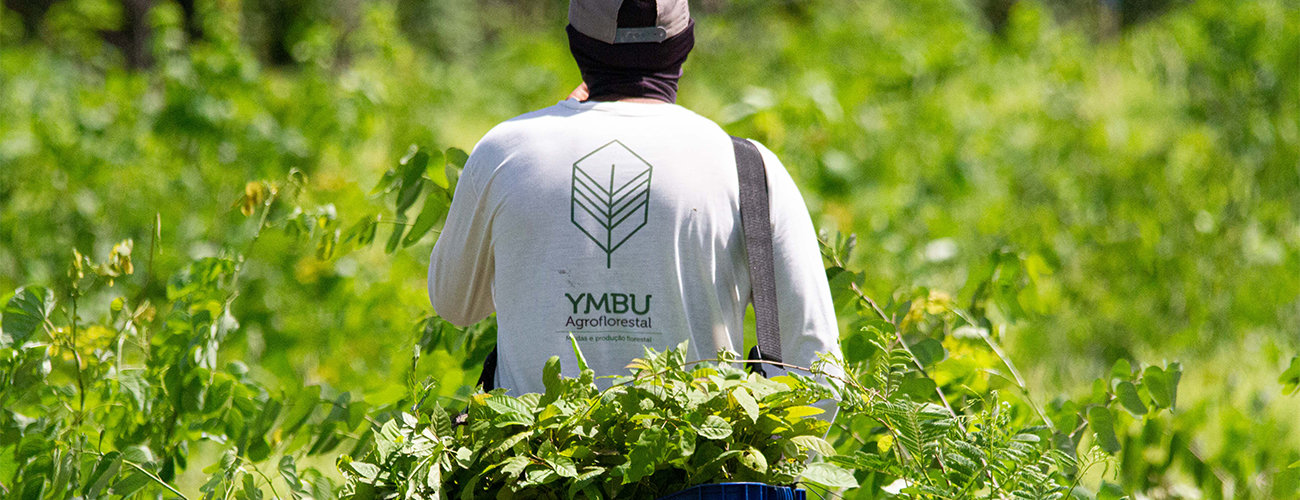
Natalia Agüeros-Macario, Umicore’s ESG director and Quentin Poncelet, Internal Communications Manager, discuss how we target our donations and social impact, including how we align our policies with our Let’s Go for Zero ambitions and a new initiative to bring climate impact into the program we support.
"Combining climate or environment with social dimensions can maximize positive impact on people and the planet in line with our ambitions."
Natalia Agüeros-Macario, ESG director
Why does Umicore have a donations committee and what are its criteria for supporting projects?
Quentin: Umicore has a deep commitment to supporting projects that deliver a direct and sustainable impact to people and their communities. We foster partnerships with international organizations such as UNICEF with a strong track record in delivering this sort of impact. The donations committee ensures that donations align with our 2030 RISE strategic ambition to strive to be a Sustainability Champion. Projects also need to contribute to the regional spread of our donation efforts with a primary focus on the regions where Umicore is present.
Why was “planet” added to the donations policy this year?
Natalia: In 2021 we launched our Let’s Go for Zero sustainability ambitions, with its three pillars of Net Zero Scopes 1 and 2 greenhouse gas (GHG) emissions, Zero Inequality and Zero Harm. I saw an opportunity to update our existing donations policy. Our impact on local communities was always visible in the policy. So I asked, if we, as an organization, are looking to improve our climate impact, how can we do that in a way that also supports local initiatives?
I explained to the donations committee the approaches known as climate equity and environmental justice, which combine climate or environment with social dimensions, so that environmental and social impact happen together. Integrating these approaches could maximise positive impact on people and the planet in line
with our ambitions. The committee agreed that this was a worthwhile addition to our existing donations policy.

What is the first “planet” project Umicore has chosen to support, and why?
Natalia: The Syntropic Forestry Project is a lighthouse project in that it’s our first venture in the climate equity and environmental justice space. As we’re active in Brazil, it’s a project that provides the chance to have an impact in our value chain.
The deforestation crisis in Brazil is no secret, nor is the impact it has on climate change. However, the impact on local rural communities suffering from both environmental degradation from deforestation and the effects of climate change, is maybe less visible. Syntropic forestry is one way that communities can tackle these negative impacts. It is an innovative approach to sustainable farming that helps restore biodiversity and regenerate forests. The project connects an agricultural community in Caatinga with new skills, information and training. Local farmers can create resilient and selfsustaining agroecosystems that can adapt to changing conditions through agricultural practices, upskilling and knowledgesharing.
The project also improves the overall environmental quality of the agricultural activity that’s happening there and contributes to biodiversity, which are key features of syntropic forestry.
What have been the key achievements of the syntropic forestry project so far?
Natalia: It’s the first year of a three-year agricultural and forestry project, so it’s still quite small. That said, there have been vast amounts of remediation training, soil has been prepped and seedlings have been planted. The team is particularly proud of the fact that even though the landscape is very challenging, the project has managed to stay on schedule.
Have you always been interested in sustainability and the environment?
Natalia: I’ve always been passionate about sustainability, even as a kid. I’ve worked in sustainability for the last 20 years, and when I started, it was with projects that explored how the environment could contribute to the overall wellbeing of lowincome communities. Today, I feel proud to be at Umicore, and tremendously lucky that Umicore continues to provide opportunities to investigate ways to maximize the impact that we can have, including through our donations policy.
“It makes me really proud to see first-hand how our donations make a difference to the lives of people who benefit from them.”
Quentin Poncelet, Internal Communications Manager
Disaster relief is a big issue given the recent earthquake in Morocco and the wars in Ukraine and Gaza. How does this aspect of Umicore’s donation policy work?
Quentin: We have a specific budget that’s earmarked for major disasters so that we can donate quickly to support those most in need. In 2023 we donated to Doctors Without Borders and the Red Cross to support victims of earthquakes in Libya, Morocco, Syria and Turkey. We also donated to World Central Kitchen, an NGO serving fresh meals to Ukrainian families fleeing from the war.
Are there any new partnerships that have launched in the past year?
Quentin: We’ve started a number of new partnerships all focusing on the Democratic Republic of Congo (DRC), which is important for Umicore in terms of cobalt sourcing. These include a partnership with SOS Children’s Villages where we help families at risk of separation so that more children can grow up within their own family. We also have a partnership with Mamas for Africa, an NGO providing psychological and medical support to women and girls who have suffered violence and exploitation.

What do you most enjoy about your work on the donations committee?
Quentin: I’m really proud of my role in coordinating the projects, building and maintaining the relationship with all our partners.
I also enjoy bringing the donation committee together, ensuring we support worthy causes in accordance with our policy. This includes making sure we can respond quickly when a disaster occurs. Most of all, I’m proud of Umicore’s continuous engagement to give back to people and planet.
Have you had an opportunity to see the projects Umicore supports, in action?
Quentin: A few years ago, I visited the classrooms built by UNICEF in Madagascar with Umicore’s support. And last year I visited UNICEF’s supply hub in Copenhagen. When there’s a crisis they can ship whatever is needed, whether it’s vaccines or medical equipment, around the world really quickly. So, when war broke out in Ukraine, UNICEF was one of the first organizations to ship medical supplies to the borders to help the victims of the war. Seeing these projects on the ground gives you a real sense of the reality. It makes me really proud to see first-hand how our donations make a difference to the lives of people who benefit from them.


